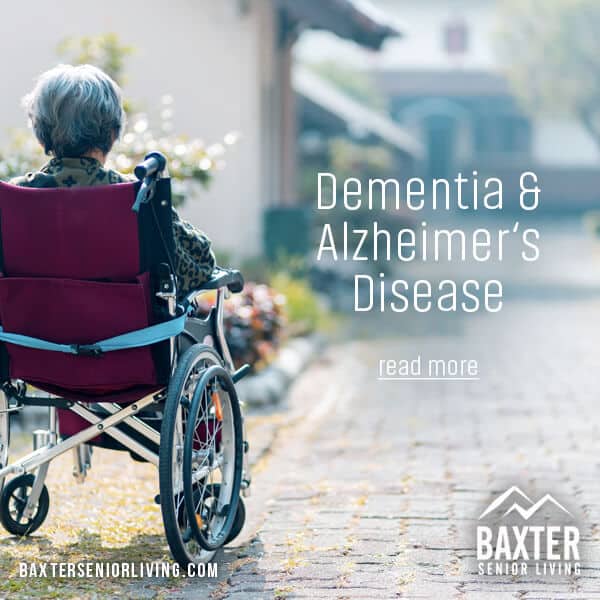Today there are about fifty million people in the world living with dementia. Dementia is the umbrella term given to the set of symptoms caused by various diseases, most commonly Alzheimer’s disease. Unfortunately, despite ongoing research and investigation into this illness, the number of people dealing with it is expected to rise to over one hundred and fifty million by the year 2050. In addition, despite all of the research put into trying to understand better the causes and possible treatment options for dementia and Alzheimer’s disease, there are still many misconceptions around them.
Below are a few of the most common misunderstood thoughts and ideas people often attribute to dementia and Alzheimer’s disease.
1) Alzheimer’s disease and dementia are not the same things
Dementia is a term used for terms such as confusion, memory loss, changes in mood, and changes in personality. There is a wide range of conditions that can cause dementia. Although Alzheimer’s disease is one of these illnesses, it is not the only one. Some other common diseases include dementia with Lewy bodies, vascular dementia, and Frontotemporal dementia. Dementia is the word used to describe the symptoms that result from any one of these illnesses.
2) People react differently to the word’s dementia and Alzheimer’s Disease
Although dementia and Alzheimer’s disease are often confused or considered the same illnesses and both benefit from memory care services, people often react differently when they hear one word or the other. When you ask people to describe or consider dementia, they often think of age, mental health, or memory loss. When you asked people to think about Alzheimer’s disease and how it looks, they tend to relate it to other physical health conditions such as cancer or diabetes. So, even though dementia is caused by an illness such as Alzheimer’s disease, the word itself is viewed as more of a mental disorder as opposed to something caused by and related to a physical illness.
3) Dementia is not an inevitable part of getting older
A common misconception is that you get more forgetful as you get older, so people firmly believe dementia is just an inevitability that happens to most people. It is not uncommon to hear things like “my gramma had dementia, but she was really old” or “my grandpa forgets things, but it’s ok because he was old and probably had dementia.” Statements or beliefs such as this fuel the thought process that dementia, forgetfulness, and age are all intertwined. It also contributes to the assessment that because age and dementia are related, there isn’t anything that can be done to ward off dementia. Research shows that more people over the age of ninety don’t have dementia than those who do
4) Almost half of adults do not realize it causes death
A recent survey found that almost fifty percent of adults do not realize dementia leads to death and is one of the leading causes of death in some countries. Unfortunately, this often results in people attempting to insert humor into the conversation around dementia and Alzheimer’s disease. But these diseases are equally as likely to shorten your life as cancer or heart disease.
5) Alzheimer’s disease affects brain composition
A brain that is affected by Alzheimer’s disease can weigh approximately five ounces (or about the weight of an average-sized orange) less than an unaffected brain. Although the number sounds small, that is a considerable portion of the brain that is lost. Think of it in terms that are easier to visualize. Imagine someone who is missing their foot or hand but still has the rest of their leg or arm. Unlike missing elements of the brain, these are missing pieces you can see, and most people would be more likely to help. The physical effects of dementia on the brain are impossible to see, yet equally as debilitating.
6) There are more symptoms than memory loss
Memory loss is the most common and well-known symptom of dementia, but there are many more. As the disease progresses, people get more symptoms, including those that are physical in nature. Eventually, they will have difficulties speaking, moving around, and swallowing. These symptoms are the eventual cause of falls or infections that people are unable to recover from.
7) Risk factors are within our control
There are a variety of risk factors responsible for dementia, and almost one-third of them are within our control. Factors such as age and genetics are beyond individual control; however, certain lifestyle factors are also attributed to increased risk for dementia. These lifestyle factors, including smoking, depression, physical inactivity, elevated blood pressure, and obesity, are all within individual control and can reduce the risk of developing dementia.
You will notice these “controllable” symptoms are primarily related to things that impact the heart. Many people do not realize heart health and brain health are linked. Many of the risk factors associated with heart health are also associated with dementia. Your brain uses most of the blood pumped by your heart, so anything that damages your heart will inevitably influence your brain health.
8) Dementia does not just affect old people
Dementia is not just a disease for the elderly. Between two and eight percent of cases worldwide affect younger people. Further, many of the most important and avoidable risk factors (such as type 2 diabetes and high blood pressure) for dementia appear in mid-life between the ages of forty and sixty-four. Unfortunately, most people are unaware of these controllable risk factors and are also unaware that dementia is not merely something our grandparents get. Consequently, they do not always do what is needed to mitigate these risk factors, which increases the chances of early-onset dementia and related illnesses.
9) There is no cure or treatment for diseases progression that causes dementia
There is currently no cure for the diseases (as mentioned above) that cause dementia. There are also no treatments that are shown to modify the progression, although there are many studies currently underway. Today, there are drugs available that can help address particular symptoms, but these medications do not stop the disease’s progression within the brain.
10) Sometimes, only sight and perception are affected
Sometimes, memory loss isn’t a symptom of dementia until the very advanced stages of the disease. During the early stages, some people may struggle with or develop issues with depth perception and color perception. Floor mats or puddles can appear to be holes in the floor, and gleaming floors may look like water. It becomes difficult to distinguish between shiny and wet or black and a hole.
These small changes in perception or errors in perception can have a significant impact on the way people with dementia live. These challenges may also lead to signs of aggression or agitation commonly seen in Alzheimer’s disease and dementia patients. Small changes in their environment, such as eliminating shadows or leaving curtains open to allow for more light, may have a significant impact on the quality of life.
Over time, the stigma associated with dementia and associated diseases has begun to wane. People seem more willing to talk about diagnoses, symptoms, and treatment. Although the awareness of dementia has improved, the understanding of the disease still falls short. If your Alaskan senior loved one with dementia or Alzheimer’s disease resides in a senior living community such as Baxter Senior Living here in Anchorage, Alaska, and struggles with the symptoms of dementia or other associated illnesses, our staff is trained and experienced to assist them with their daily needs. At Baxter Senior Living, we care about the mental, physical, social, and emotional health of your loved one, and we understand the challenges that can arise from living with an illness that is so commonly misunderstood. If your loved one is currently living on their own and experiencing symptoms of dementia that are impacting their ability to successfully participate in or complete their day to day activities, contact us at Baxter Senior Living today.


